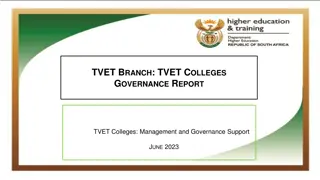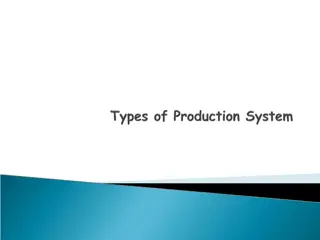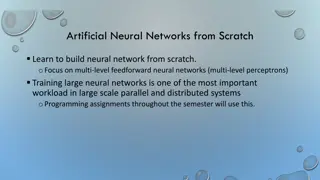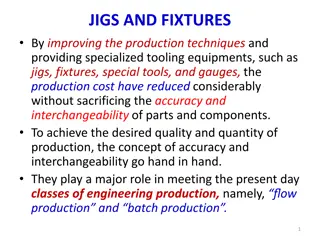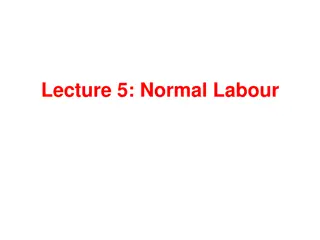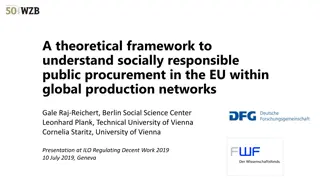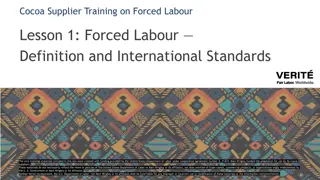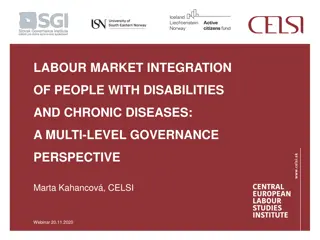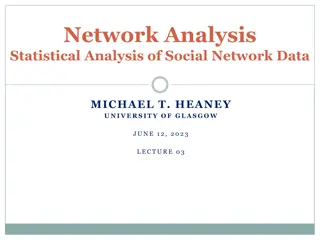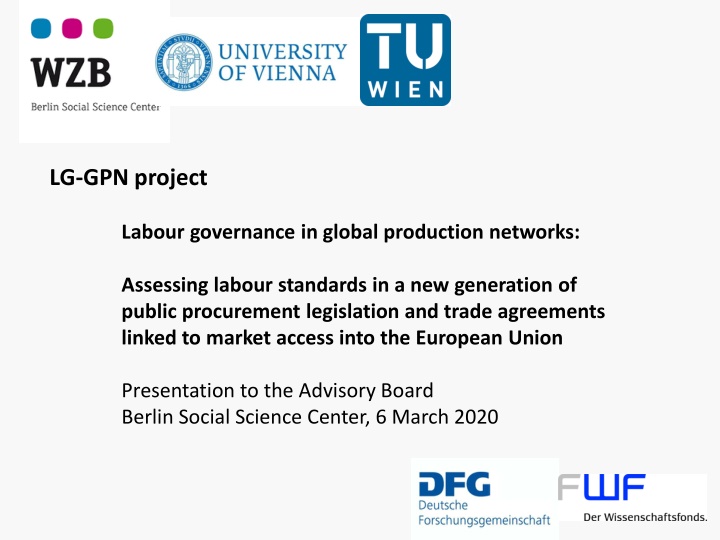
Labour Governance in Global Production Networks: Assessing Labour Standards in Public Procurement Legislation and Trade Agreements for EU Market Access
Global production networks (GPNs) face challenges with working conditions and labour violations in supplier countries. The LG-GPN project focuses on new labour governance mechanisms related to market access into the EU, analyzing their impact on working conditions in Vietnam's electronics and garments sectors under two instruments: Socially Responsible Public Procurement (SRPP) and Trade and Sustainable Development (TSD) chapters in Free Trade Agreements (FTAs).
Download Presentation

Please find below an Image/Link to download the presentation.
The content on the website is provided AS IS for your information and personal use only. It may not be sold, licensed, or shared on other websites without obtaining consent from the author. If you encounter any issues during the download, it is possible that the publisher has removed the file from their server.
You are allowed to download the files provided on this website for personal or commercial use, subject to the condition that they are used lawfully. All files are the property of their respective owners.
The content on the website is provided AS IS for your information and personal use only. It may not be sold, licensed, or shared on other websites without obtaining consent from the author.
E N D
Presentation Transcript
LG-GPN project Labour governance in global production networks: Assessing labour standards in a new generation of public procurement legislation and trade agreements linked to market access into the European Union Presentation to the Advisory Board Berlin Social Science Center, 6 March 2020
Background and problematic Global production networks (GPNs) face poor working conditions and labour violations in supplier countries of the Global South LG-GPN project focuses on how a new generation of labour governance mechanisms tied to market access into the EU can influence working conditions in the electronics and garments sectors in Vietnam Focus on 2 instruments: 1. Socially Responsible Public Procurement (SRPP): Case studies on Sweden, Germany, Austria, and the Netherlands 2. Trade and Sustainable Development (TSD) chapters in Free Trade Agreements (FTAs): Case study on the EU-Vietnam FTA (EVFTA) How do labour conditions in these mechanims influence: a) GPN governance via lead firm and supplier behavior in Vietnam? b) Actions of the Vietnamese state regarding working conditions? c) Worker power in Vietnam? Including civil society organizations Are the new generation of labour governance mechanisms (more) effective in improving working conditions in GPNs? How and why?
Interdisciplinary theoretical framework GPN analytical framework (inter-firm relationships, firm-non firm actor relationships, country competitiveness & upgrading) Political Economy of the EU Political economy of Vietnam Transnational regulatory governance (state power, regulator and market power, externalisation of standards, trading up/down theory) Worker power (structural and associational power, collective transnational mobilisation, intersectionality)
GPN framework Lead-firm and supplier governance (Anner et al., 2013; Coe and Yeung, 2018) Multi-actor relations in global production, emphasis on the state (Henderson et al., 2002; Smith, 2015) Transnational regulatory governance EU state Market power Europe (Damro, 2012); normative power (Manners & Whitman, 2003) Regulator and buyer state (Horner, 2017; Kahlenborn et al., 2010; Majone, 1997) Modes of power: institutional, legislative, judicial, discursive Transnational/externalisation of regulations, standards and norms Trading up (Levi-Faur and Staborin, 2014; Marx et al., 2016; Vogel, 1995); trading down Global norm-setting (Evans, 1997) Worker power Associational and structural power (Wright, 2000; Silver, 2003; Brooks, 2019) Labour geography literature on labour agency Intersectionality of identities & discrimination Formal and informal actors in worker mobilization (Tapia et al. 2015) Transnational collective power
Three pillars of theoretical inquiry EU State power Worker power Firm relations Meta-state & multi-scalarity Capacities: institutional, regulatory, market Modes of power: institutional, legislative, judicial, discursive Transnational effects of governance instruments - Structural & associational power GPN relations: lead firm-EU, lead firm-civil society organisations, lead firm-suppliers in Vietnam, lead firm- Vietnamese state, suppliers-civil society organisations, suppliers- workers - Formal and informal actors - Intersectionality - Transnational collective power between EU-Vietnamese actors
Political economy of the EU Changed global context - geo-economic & -political shifts, rise of China Internal crisis in the EU - right-wing nationalism, Brexit, climate crisis & Industry 4.0 Changes in European Parliament and European Commission - stronger Green Party, partial shifting of (or contradictory) discourse away from neoliberal politics (e.g. European Green Deal) Yet, contradictions/counter-forces remain single market priority, EU competitiveness, austerity politics Effects on SRPP and EVFTA TSD instruments: Public procurement protectionism vis- -vis China EP demand for binding TSD chapters
Political economy of Vietnam Doi Moi renovation from 1986 - Central planning to socialist market economy under state guidance and emergence of private sector & FDI Foreign ownership/GPD: 0% in 1990; 20% in 2018 Exports/GDP: 36% in 1990; 106% 2018 Still important role of SOEs, local firms & industrial policy Some political liberalization - but single-party system (Vietnamese Communist Party) Factions: Conservatives, modernizers, moderates, rent-seekers (Vuving 2017) Dialogical state (Kerkvliet 2001), accommodating state (Koh 2006), responsive-repressive state (Kerkvliet 2010), authoritarian competition state Monopoly union structure - VGCL is only trade union, sub-ordinated to the VCP Poor representation & low FIE sector coverage never (officially) led a strike Contradictions : Wildcat strike wave Weak civil society

